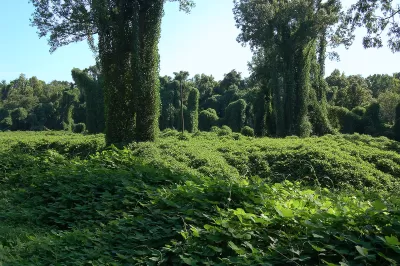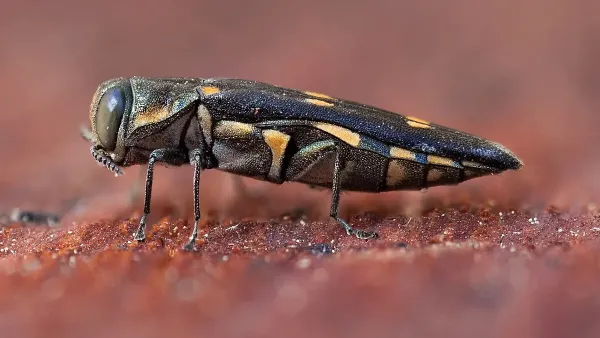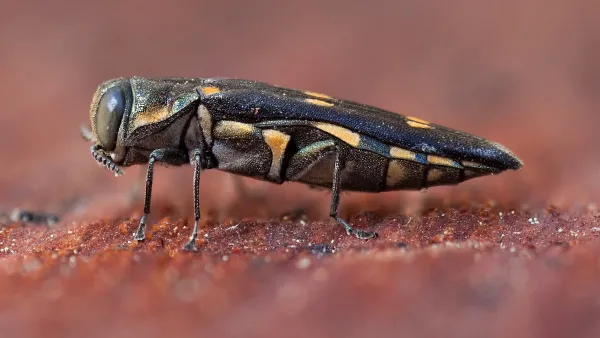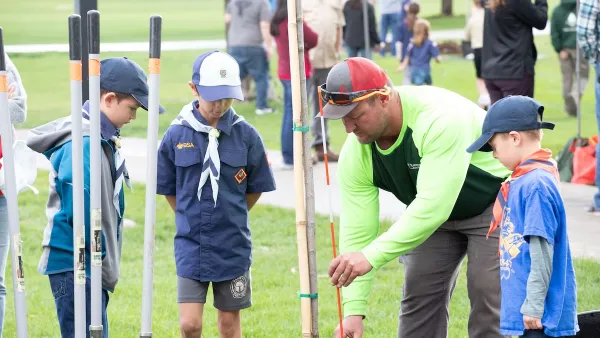Visually striking and aggressively invasive, kudzu has been choking the Southeast for decades. Now, designers, chefs, and activists want to find ways to make it useful.

Writing in Southerly Magazine, Ayurella Horn-Muller describes the influence and potential of an infamous, invasive vine known for choking Southeastern landscapes. Kudzu, a plant with "bristly, yellow-green vines and heart-shaped leaves," covers an estimated 7.4 million acres in the American Southeast and "has a reputation of being aggressively damaging to biodiversity, economies, and ecosystems." Now, writes Horn-Mueller, "after decades of being a thorn in the side of U.S. cities, rural towns, as well as the agriculture, lumber and forest product industries, kudzu’s uses are expanding — now including building materials, cooking, healing, climate action, and even cultural advocacy."
First introduced in the U.S. at the 1876 Philadelphia World's Fair, kudzu was planted decoratively and, later, to prevent soil erosion. Far from its old reputation as "Savior of the South," some are now starting to refer to it as "the vine that ate the South" due to its "ability to grow anywhere, up to a foot per day and sixty feet during the growing season."
Because it chokes the plants around it and can even impact the local nitrogen cycle in the air, kudzu contributes to ozone pollution. Economically, the damage is severe. Controlling the infestation "is already costing the forest product industry $500 per hectare per year," and an AECOM study in Oklahoma projected that the plant's spread "could result in a loss of $167.9 million" over the next five years.
"In lieu of policies to control the spread of the invasive plant, artists, chefs, and designers are finding creative ways to harvest and repurpose the plant." Designers Katie MacDonald and Kyle Schumann, founders of After Architecture, "saw [the plant's] overabundance as a possibility" to develop kudzu and other invasive plants into useful building materials. Restaurants like Kudzu Seafood Company in Macon, Georgia are experimenting with chips and other dishes made from the kudzu root, a popular edible in Japan.
"[Paulina] Harron, the researcher who led the study on the plant’s economic impact, said that these are important steps towards the bigger goal of increasing the public’s knowledge of and participation in invasive species management." While finding new uses for the plant may not mitigate the infestation issue, "using a combination of management methods is useful in controlling their populations."
FULL STORY: The role of kudzu in architecture, cuisine, and culture

Planetizen Federal Action Tracker
A weekly monitor of how Trump’s orders and actions are impacting planners and planning in America.

Maui's Vacation Rental Debate Turns Ugly
Verbal attacks, misinformation campaigns and fistfights plague a high-stakes debate to convert thousands of vacation rentals into long-term housing.

San Francisco Suspends Traffic Calming Amidst Record Deaths
Citing “a challenging fiscal landscape,” the city will cease the program on the heels of 42 traffic deaths, including 24 pedestrians.

Amtrak Rolls Out New Orleans to Alabama “Mardi Gras” Train
The new service will operate morning and evening departures between Mobile and New Orleans.

The Subversive Car-Free Guide to Trump's Great American Road Trip
Car-free ways to access Chicagoland’s best tourist attractions.

San Antonio and Austin are Fusing Into one Massive Megaregion
The region spanning the two central Texas cities is growing fast, posing challenges for local infrastructure and water supplies.
Urban Design for Planners 1: Software Tools
This six-course series explores essential urban design concepts using open source software and equips planners with the tools they need to participate fully in the urban design process.
Planning for Universal Design
Learn the tools for implementing Universal Design in planning regulations.
Heyer Gruel & Associates PA
JM Goldson LLC
Custer County Colorado
City of Camden Redevelopment Agency
City of Astoria
Transportation Research & Education Center (TREC) at Portland State University
Jefferson Parish Government
Camden Redevelopment Agency
City of Claremont





























